To find the right brokerage, new and inexperienced real estate agents should review each brokerage’s structure, commission plans, and overall reputation. Before making a decision, you should also look into other success factors, such as a brokerage’s online presence, fees, contracts, and lead distribution strategies. Keep in mind that choosing the right brokerage has a huge impact on your immediate success and long-term future in the industry. Follow the steps below to learn how to choose a real estate company to work for.
To start or boost your real estate business most efficiently, here’s a detailed guide on how to choose a real estate company to work for.
1. Decide Which Type of Brokerage to Target
To represent clients in real estate transactions, real estate agents and salespeople are required to have a sponsoring broker. For new real estate professionals, choosing a brokerage to work for can either be the key to success or a major point of struggle. It’s incredibly important to choose the right company by understanding the different types of real estate brokerages and their pros and cons.
Learn and evaluate the differences between national franchise brokerages, boutique brokerages, and virtual brokerages to decide which option is best for you.
National Franchise Brokerages
Franchise brokerages are large national companies that sell the rights to use their name, branding, and business model to brokers, like RE/MAX, Century 21, and Keller Williams. After the company sells a franchise to an individual broker, they also charge them a set percentage for every deal closed in the office. While many franchises are independently owned, almost all of them follow the rules and regulations set by the head office.
Who national franchises are best for: Both new and established agents who want support from experienced mentors, access to high-quality training programs and technology, and an established reputation.
For those who want to minimize the costs of becoming an agent, finding a brokerage to work for that already has a variety of real estate tools and technology in place is ideal. Franchise brokerages are also nationally recognized with strong reputations, so working for a real estate company like these can build your own trustworthy brand.
Along with being part of a large, national brand, you’ll be one of thousands or hundreds of thousands of agents. For example, there are over 188,000 Keller Williams real estate agents worldwide. While this provides you with a large pool of people for support and camaraderie, it can also mean more competition.
It also limits your autonomy to make decisions for your individual real estate business. The potential negative of having established technology systems and tools is that you aren’t able to experiment with different types of websites or lead generation platforms. Plus, reaching any company leadership beyond your brokerage can be extremely difficult.
Boutique Brokerages
Boutique brokerages are generally owned by a single broker. Examples include Core Real Estate out of Manhattan, Bayside Real Estate in Los Angeles, and @Properties in Chicago. Even though boutique brokerages can be significantly smaller in size than franchise brokerages, that doesn’t limit their sales potential. In fact, many of the most successful brokerages in the country are boutique brokerages, selling over $12 billion worth of real estate in 2021.
Who boutique brokerages are best for: Real estate professionals who prefer more close-knit relationships with colleagues, hands-on training, and interaction with leadership, and are focused on a specific niche market.
Many local boutique brokerages have just a few agents working for a single brokerage, like Salt Real Estate in Edmond, Oklahoma, or Prime Residential Brokerage in Salt Lake City, Utah. Other boutique brokerages have multiple offices with a total of a few hundred or thousand agents, like Sereno, with 17 locations and approximately 600 agents.
When you’re learning how to find a broker to work for, you’ll find that boutique brokerages offer the widest range of support, marketing, and tools. Some boutique brokerages offer extensive training programs and marketing systems, comparable to the features of franchise brokerages.
Others may provide only a few basic tools like a single-page website, but offer complete flexibility in marketing strategies and a close-knit team environment. Although each brokerage’s offerings and team culture will differ, there is more likelihood of finding more team camaraderie in a boutique brokerage instead of competition.
Each boutique brokerage should be evaluated individually without making assumptions about what is or isn’t included. Read our article 24 Critical Questions to Ask a Broker in a Real Estate Interview and download our free real estate brokerage interview questionnaire to be prepared and make sure you’re asking the right questions.
Virtual Brokerages
With the advent of software as a service (SaaS), real estate software, and the increasing reliance on online advertising, virtual brokerages are now a viable option for independent and experienced real estate professionals. Instead of working for a physical brokerage office, virtual real estate brokerages allow you to handle your real estate needs with the most flexibility and from the convenience of your computer.
Who virtual brokerages are best for: Experienced agents who want ultimate flexibility, technological resources and tools, and maximum profits.
A virtual brokerage may offer the best of both worlds for agents who want a high commission split and access to technology. For experienced agents with an existing reputation and pool of clientele, virtual brokerages can offer the perfect balance of flexibility and automation tools to scale their business.
For example, one of the top virtual brokerages, Real, provides an 85/15 commission split. It provides agents with free IDX websites, landing pages, live chat, customer relationship management (CRM), Dotloop, cloud comparative market analysis (CMA), and extensive online training and support.
However, for newer agents or part-time agents, virtual brokerages may or may not be the right choice to get their business off the ground. The high-tech tools and high commissions look extremely attractive, but as you learn how to find a brokerage to work for, there is far more to consider. New real estate agents usually need more localized and individualized support while they do the hard work of establishing authority and networks in their area.
A brand-new real estate agent business must have potential clients and new leads before an enterprise-level CRM is useful. Even the largest variety of tools, technology, and online communities won’t be effective if an agent isn’t able to make in-person connections and sales. Plus, some virtual real estate brokerages require monthly fees regardless of the agent’s production, which can be a risk for those who don’t consistently close sales.
2. Choose Between Going Solo & Joining a Team
When you’re learning how to choose a real estate brokerage to work for, you must understand the two ways you can work with them. The most well-known way is to go solo and operate as an independent real estate agent. The second option is to join a real estate team, which means that you work with a group or under a more experienced agent within your brokerage.
What It Means to Go Solo
Most new real estate agents plan on going solo when they enter the industry. Solo agents are independent, and all business responsibilities, like lead generation, nurturing, transactions, and accounting, are on your shoulders. You only have your real estate brokerage to lean on, which is another reason why it’s so important to choose one that provides the level of support you’ll need.
Even though going solo is a significant amount of work, the benefit is that you’ll earn more commission per sale. Members of a team have to split the commission they earn even after the brokerage’s commission split, but solo agents keep the full commission percentage that’s agreed upon with your broker (e.g., 70/30 or 80/20).
You also don’t have to consult anyone else to make marketing or business decisions. As long as they fit within your brokerage’s rules, you have complete creative control over your business.
If you have a large sphere of influence, enough cash reserves to keep you afloat, or a marketing background, going solo might be the best choice for you. The downside of having autonomy as a solo real estate agent is that you don’t have help. You have to learn everything and build your business from scratch. You will need to try multiple lead generation strategies before finding what works in your area, which can take valuable time, money, and effort.
What It Means to Join a Team
Joining a real estate team is often an ideal path for brand-new, inexperienced, or part-time agents, especially if they are feeling anxious or unsure about their first steps. Members of real estate teams usually receive benefits like covered expenses and a group of mentors, so you’ll learn how to run a real estate business the right way from a seasoned pro.

Example real estate team
(Source: Team Ed Martin | RE/MAX First Real Estate Team)
The team will also often feed you leads, so you can spend more time actually working with clients and less time on marketing and lead generation. It can take a long time for new agents to establish an effective lead generation system, so working within a team can help you gain experience and confidence while you build your systems.
Being part of a real estate team can also be a great choice for experienced agents who aren’t focused on scaling an individual business. Many agents prefer the team environment and the flexibility of handing off tasks and clients to trusted team members. If you’re thinking about starting a team for these reasons, read our guide to building an all-star real estate team.
On the other hand, joining a team means a lower commission split since you’re typically working on deals as a team and splitting the profits. You’ll also sacrifice flexibility and autonomy by working on a team, which could be a benefit or a drawback depending on your goals and motivation. Evaluate your short- and long-term goals to determine if a real estate team or going solo is right for you.
3. Compare Commission Plans
Every real estate company and brokerage will have varying commission splits, fees, and contracts. When you’re deciding how to choose a real estate company to work for, make sure you understand the types of commission plans, common fees, and contracts. While you can find out some of this information on your own, you will likely have to request a face-to-face interview to understand the options offered by brokerages in your area.
Generally speaking, there are three types of commission split structures offered by real estate brokerages: traditional fixed plans, high split plans, and graduated or tiered plans. See the breakdown of each by clicking on the tabs below:
Traditional commission splits are fixed agreements (e.g., 50/50, 60/40, or 70/30). The agent receives a designated percentage of the commission on each transaction, and it doesn’t change based on production or sales goals. Fixed or traditional commission splits generally come with minimal or no desk fees. Since they are the most predictable and risk-free commission split structure, they’re ideal for new or part-time real estate agents.
A high split plan means you will get a higher percentage of the overall commission, generally ranging from 80% all the way up to 100%. While this sounds great, know that when you work for a real estate company with a high split model, they often implement other fees to recoup their expenses. These can be required monthly fees or per-transaction fees, so there is less predictability and more risk.
High or no split commission splits are best for experienced real estate agents who consistently close sales to ensure a return on investment (ROI) on all potential fees.
Gradual or tiered plans are like a happy medium between high split plans and traditional split plans. They are often built on a graduated split system, so agents can increase their commission split as they reach sales goals. Tiered plans can start with a split of 50% to 70% to the agent at the start of the year, and increase up to 100% when production goals are met. These plans are ideal for goal-driven agents of all experience levels.
4. Examine the Reputation of the Real Estate Brokerage
As you learn how to find a real estate brokerage to work for, it’s important to clearly evaluate the company’s current reputation in your local market. When you associate yourself with a brokerage, you also will be taking on the reputation of your sponsoring brokerage. Therefore, you should do thorough research beforehand to find out exactly what people in your community think about the brokerage.
Here are four ways to determine if the potential brokerage has a strong reputation:
Ask Your Network
By far the most reliable and honest feedback you can get on a brokerage is directly from their clients. Ideally, the people you ask will be local members of your community who are either currently in the market for a real estate transaction or have completed one in the past.
You can reach out to your network in a variety of ways, like one-on-one conversations, making a post on your social media profile, or in a Facebook group. Either way, it’s best to ask specific questions either in person or over the phone, so it’s easiest to hear the person’s tone, expression, and clarify any answers.
Here are a few questions to ask your network:
- Have you heard of X real estate brokerage?
- Do you have friends, family, or acquaintances who have used the brokerage? Were they satisfied with their experience?
- What’s the first thing that comes to mind when you think of the brokerage?
- What has your experience been with X real estate brokerage?
Review Press Mentions
Do a quick Google search for the agency or company, using the “News” tab to find related pages from other sources. Quickly scanning the results will show you how frequently they receive press, and just a few minutes of searching will show you what kind of publicity they’ve received. Many large companies will also have a press section on their website.
A brokerage with many local and national results shows that they are well-known and generally respected. However, learning how to find a real estate broker to work for means evaluating the strengths and weaknesses of each brokerage as a whole. There are many small real estate brokerages that have a stronger reputation than even the most popular choices, but their publicity will be minimal.

Example brokerage Google search
Read Online Reviews
Studies show that up to 93% of consumers read online reviews before making a purchase, and that’s especially true for buyers or sellers anticipating the largest transaction of their life. At the same time, online reviews are sometimes only given by people with particularly strong opinions, whether negative or positive, so they should be taken with a grain of salt. However, there should be a concern if the brokerage has a large percentage of negative reviews.
Don’t forget to pay attention to the source of the reviews you look for. If you’re evaluating a Keller Williams office, nationwide reviews for the brokerage will not give you an accurate understanding of one individual location. For the most reliable reviews from clients for individual brokerages, try looking specifically for Google business reviews.
Most Google reviews are written by clients or people who have worked with the brokerage to buy or sell a home. In addition, it’s also valuable to find any online reviews from agents who previously or currently work for the brokerage, from sources like Glassdoor or Indeed reviews. It’s always best to read reviews for the specific location or office you’re evaluating, but reviews for national and franchise brokerages can also help you make your decision.
Look for Awards & Memberships
Pay attention to any awards or accolades mentioned on the brokerage’s website or social media pages. Also, look for any national associations or memberships they are associated with. Not all award-winning brokerages clearly advertise their accomplishments, so search online if you don’t find anything immediately. Being listed on the RealTrends 500 rankings is a great indicator of success.
5. Evaluate Additional Success Factors
Once you’ve established a basic understanding of the different types of brokerages and how they may or may not meet your needs, you’ll be able to more accurately and easily evaluate each potential brokerage choice. Many other factors contribute to choosing a real estate company to work for, and with a base understanding of your needs, you’ll be able to start narrowing down the strengths and weaknesses of each. This will dramatically increase your chances of finding success as a real estate agent.
These are some important additional factors to evaluate:
- Fees: Brokerages may charge a number of additional fees on a monthly or annual basis, and you don’t want to be surprised by your expenses after you’ve signed an agreement. Make sure to get a list of all fees and schedules in writing before choosing a real estate company.
- Contracts: When you select a real estate brokerage, you’ll sign a contract stipulating terms. You must read the contract carefully and completely understand all potential implications to avoid a major problem down the road. Most companies provide a one-year contract, but reading the fine print is the only way to know exactly what you’re agreeing to.
- Lead distribution strategy: Ask each brokerage how they distribute new leads to their agents. Since lead generation is such a vital element of a real estate business, their strategy should be clear and easy to understand.
- Market share: It’s important to know the brokerage’s market share, because it can be a clear indicator of the company’s success. A brokerage with a high number of listings in the market as well as an evenly distributed number of listings per agent is most likely a great place to work.
- Training plans: Depending on your experience level and needs, a real estate company’s training and mentorship programs can be a deciding factor. In many cases, the lack of support from a brokerage is why real estate agents fail.
- Culture and office setup: Company culture is often overlooked by agents, but happy agents are successful agents. If you feel uncomfortable at the real estate office or find that it doesn’t mesh with your personality, you’ll avoid important interactions and opportunities for support that can be instrumental in growing your business.
- Online presence: Not all brokerages recognize the importance of building an online presence, but real estate lead generation statistics clearly show that digital and social media marketing is only growing more powerful and effective as time goes on. Having an active online presence, even if the audience size isn’t massive, shows that the brokerage is knowledgeable about modern-day marketing and lead generation.
6. Use an Evaluation Rubric to Help Decide on Your Brokerage
Choosing the best brokerage for you and your business is not a one-size-fits-all approach. Some agents will prefer a franchise brokerage over a boutique brokerage; others don’t mind paying large desk fees in exchange for access to an office with supplies and high-quality training. Our rubric was designed to work around each agent’s diverse needs.
Download the Brokerage Evaluation Sheet
Print it out and determine which of the characteristics are best suited for your needs on a scale of one to five. As you take notes during your research and throughout the interview process with each brokerage, rate each criteria based on this scale to give a score for each brokerage. This will help you make an informed decision about which brokerage is best for you and your real estate business.
Bottom Line
One of the biggest factors in determining your career success is choosing the right real estate brokerage for your needs. For both new and experienced agents, it can be confusing because every brokerage has unique strengths and weaknesses. To learn the best way to choose a real estate company, thoroughly evaluate your needs and the brokerage’s individual offerings, and use the evaluation rubric provided.
https://www.cupbord.com/how-to-choose-a-real-estate-company-to-work-for-evaluation-rubric/


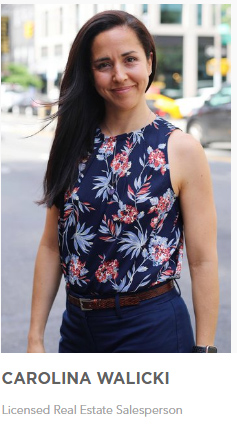

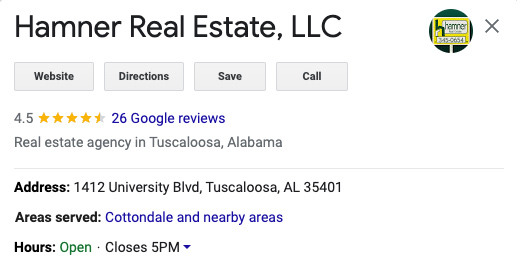
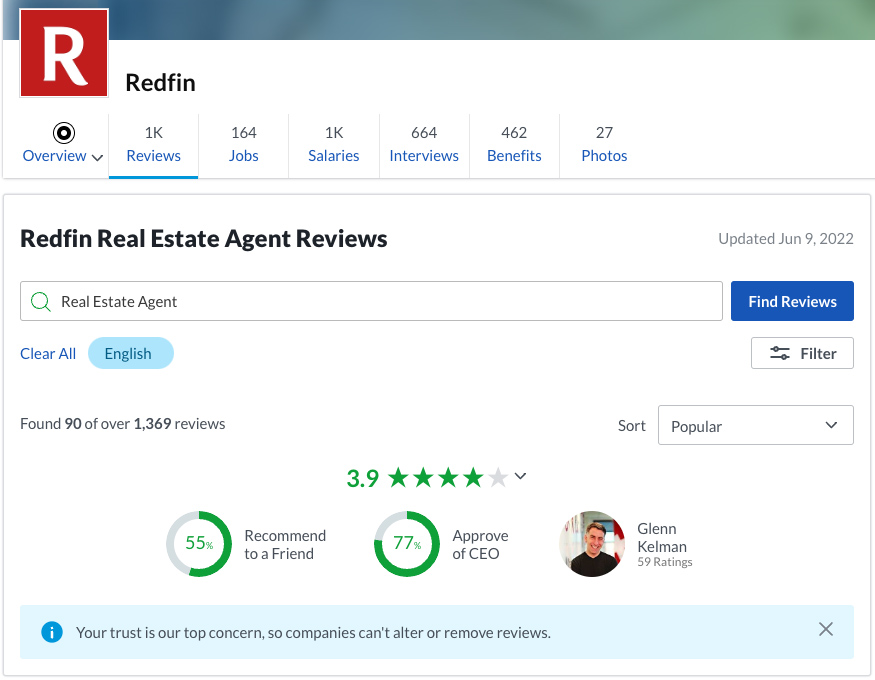
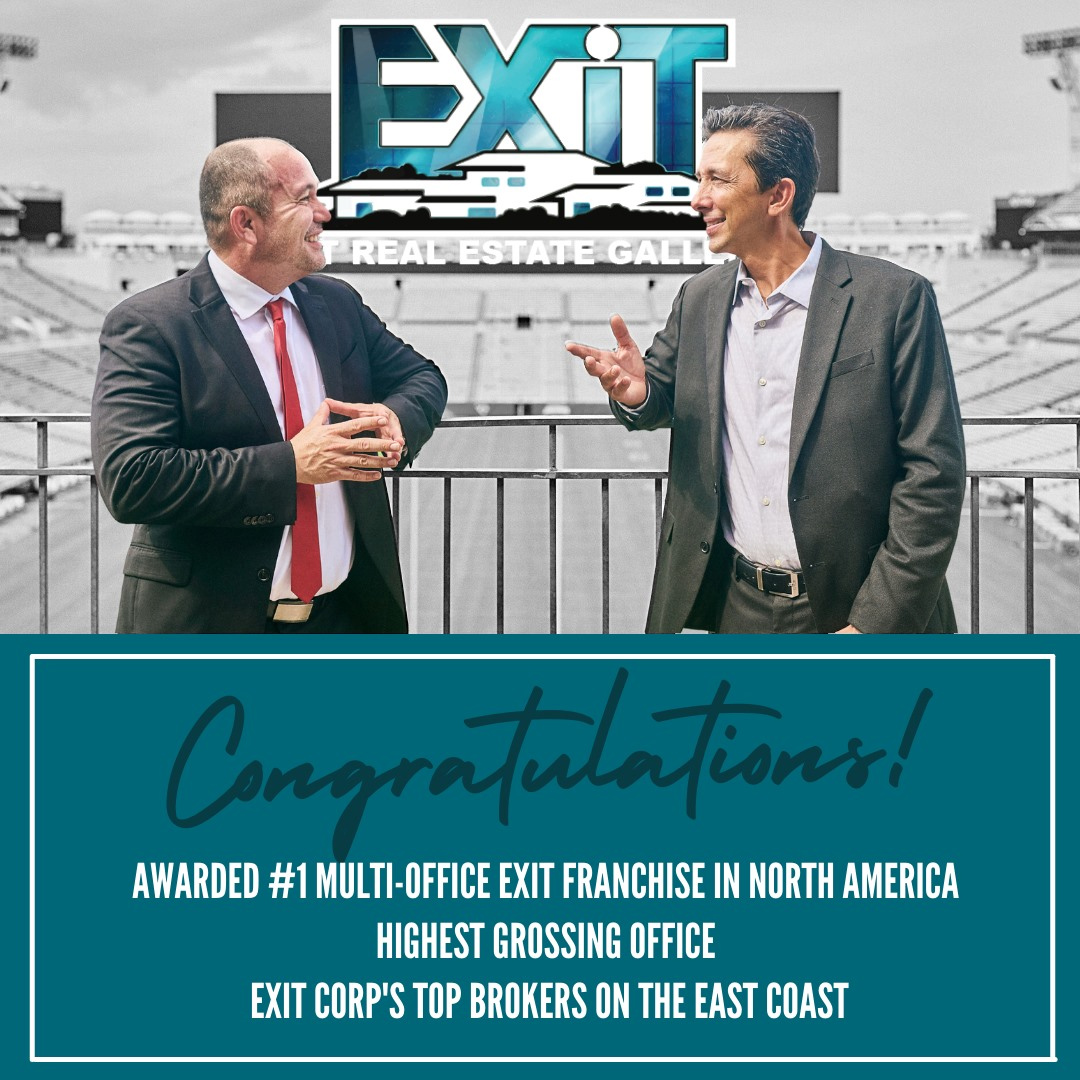
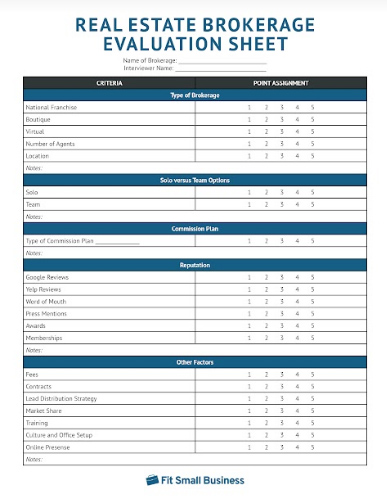









Leave a Reply